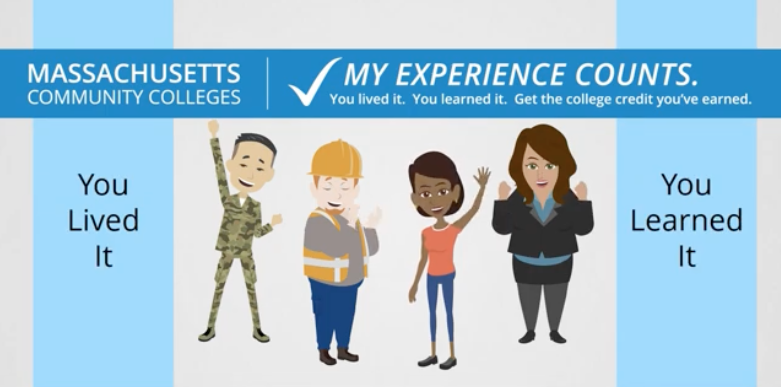Credit for Prior Learning Allows Student to Complete Degree in Under a Year
Geraldin Rivera first came to Northern Essex Community College over a decade ago. She was pursuing a degree in Human Services and had many of her credits completed when life got in the way and she decided to take some time away from college.
“I needed to focus instead on working,” remembers Rivera. She eventually settled into a job she loves working at a rehabilitation center for senior citizens. There she met the facility’s activities director who encouraged her to finish her degree. After some back-and-forth this fall, Rivera felt she was ready to act.
“I was hesitant. I knew I had to do a practicum to finish my degree and I didn’t know how that was going to go, but I thought ‘I’m going to do this and see where it goes.’”
Rivera was concerned about having enough time to complete the practicum, which is like an internship, on top of her full-time work schedule. To get an associate degree in Human Services, students must complete 150 hours of practicum work, which averages 12-15 hours a week.
Rivera shared this with Human Services assistant professor Lisa Fabbri-Lopez. Fabbri-Lopez instantly recognized that Rivera had already been working in the human services field for three years and that she could likely get academic credits in exchange for that experience. This process is called Credit for Prior Learning (CPL).
“I see it all the time with students in the human services field,” says Fabbri-Lopez. “They might not even realize something like being a camp counselor or a lifeguard or a personal care attendant can qualify them for credit. They’re helping people, it’s all very relevant to human services.”
Fabbri-Lopez says she now makes it part of her process of getting to know students to ask about their work and life experiences. When she identifies a student who will likely qualify for CPL, she connects them with NECC’s Coordinator of Academic Placement, Credit for Prior Learning, and Testing Services Donna Felisberto,
“It’s usually a very quick process. From the time I email the paperwork to Donna, sometimes in as soon as a week that a student will see the credits appear on their transcript.”
A variety of life skills and experiences can qualify for credit for prior learning across most majors.
“If a student has served in the military, or if they’re bilingual, or if they’ve received certifications through their workplace; those are all examples of skills and knowledge we can assess and likely give credit for,” says Felisberto.
To qualify, students are first asked to take a short evaluation on the state’s “My Experience Counts” webpage. Felisberto and her team will then contact the students to identify the next steps. In the case of Rivera, with help from Fabbri-Lopez, they did a Portfolio Review and a Prior Learning Assessment (PLA) and awarded her eight academic credits for her experience. That satisfied her practicum requirement.
Rivera eventually wants to be an activities director like her mentor at her current work and plans to pursue bachelor’s and master’s degrees. She says the time that she saved with credit for prior learning will enable her to start taking additional classes to help her get closer to her goal.
“Never be afraid to reach out to someone and ask for help,” Rivera offers to prospective students considering returning to school after a break. “There might be support you don’t even know about. [Credit for prior learning] saved me a year off my degree and it’s such a blessing. If you think it’s too late, it’s not. Going back to school is self-care and you shouldn’t give up.”
For more information on credit for prior learning, contact Felisberto at dfelisberto@necc.mass.edu or visit the webpage.









